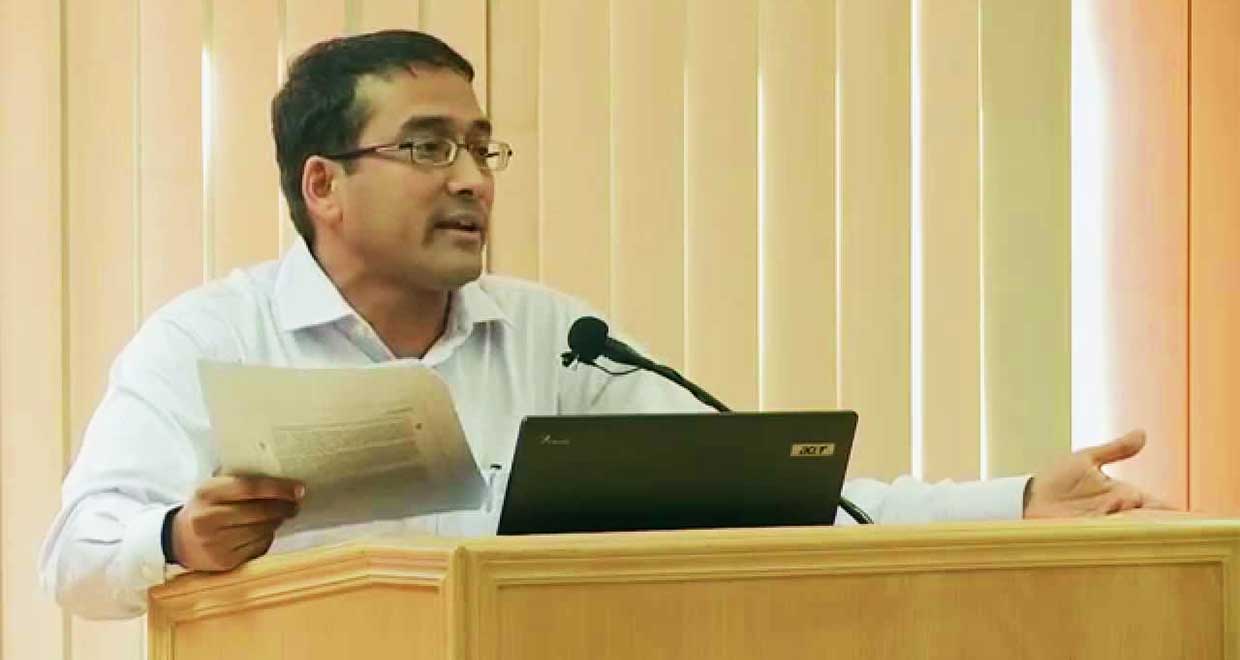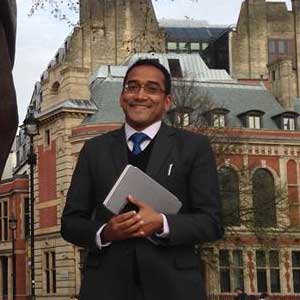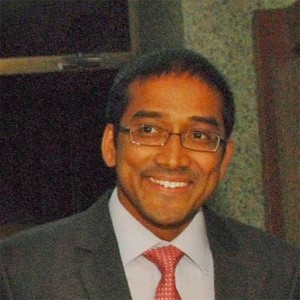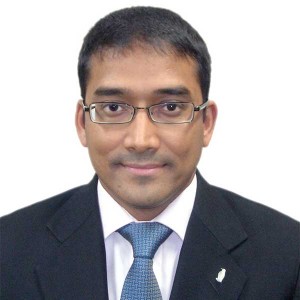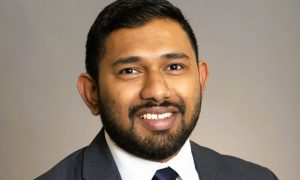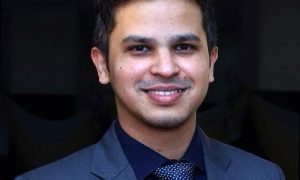Somasekhar Sundaresan graduated in B.Com and then chose to study LL.B from GLC, Mumbai. He graduated in Law in 1996. He joined Times of India as an Assistant Editor in the Business Editorial section as a law student and had continued his work there for two and half years after graduation.
With his experience in Journalism he moved on to the practice of law. His legal career began after joining work under Berjis Desai who was then a founding partner of Udwadia, Udeshi & Berjis. He worked at UUB as a partner and then moved on to his current role at J Sagar Associates, as their practice at UUB got merged with JSA.
He started work as a port sector lawyer and later built up his practice in Securities Law and Financial Sector Regulatory at J. Sagar. It has been almost twelve illustrious years of his practice at J. Sagar, we have taken this opportunity to talk about a few very pertinent questions about the law and legal practice from his experience.
We ask him about his:
- Law school journey through GLC, Mumbai.
- Work with Times of India and transformation from being journalist to a lawyer
- Years of work experience in transaction, securities and the financial sector
- Work at UUB and JSA as a partner and a core practitioner.
- Necessary skills of a lawyer which can transform an Associate into a Partner
Tell us a bit about your pre-college life as well as educational background. Did you have lawyers in your family?
I have a Bachelor’s degree in Commerce, majoring in accountancy. I am a first generation lawyer. My father was a communications professional in the Tata Group while my mother is a major in English literature and a home-maker. I did not have other lawyers in my family.
How did you decide to study law?
I enrolled to study law because that is something I believe every human being should do. For me, the study of law was not really driven by a choice of career. Each one of us should be fully conversant with the rules of life, which is what law is. I got into journalism within months of enrolling for law, and thereafter my study of law was driven by the need to be a better-informed-and-more-legally-aware journalist. Over time, when things changed in journalism, I wanted to test my professional skills before it got too late. I thought I could always go back if the legal practice did not turn out to be good for me. I was lucky to meet the right person at the right time – Berjis Desai, now the Managing Partner of JSA. He is an extraordinary mentor, nurturer of human values and an open-minded leader who can promote, spawn and manage multiple lawyers without the slightest tinge of insecurity. His acceptance of my proposal to try my hand at law, and entrusting me with opportunities, was a motivating factor too, particularly when I was a complete stranger to the profession and to its noted and reputed members.
Please share your law school experience at GLC, Mumbai. What do you think law schools, in general, can do to increase career-readiness among law students?
GLC is an excellent institution and has given birth to many notable jurists who have served India’s legal system well. This ranges from the likes of Dr. B.R. Ambedkar to Mr. N.A. Palkhivala, and then to more recent alumni who sit or have sat on benches of many a high court and the Supreme Court of India. There was a sense of awe about the heritage when one walked into the college portals – to see Dr. Ambedkar’s name in the list of principals. GLC has had its challenges, of being a state-owned institution but some motivated faculty members and the students of the college keep its flag flying.
When I studied law, a new national law school had been set up in Bangalore, and it had gained a strong reputation for its teaching infrastructure and the scale of its campus.
GLC had two batches – one that would start very early in the morning until about 9:30 am and another that would start then and go on until a little around noon. Studying jurisprudential concepts so early in the morning, participating in moot courts, class debates and studying the library, marked the student life in GLC. I was part of the Legal Aid Clinic, and exposure to poor people without legal aid was an eye-opener component of the training.
Study of law in Mumbai could be very solution-driven with pre-digested examination-oriented tools such as “Three Test Papers” and law summaries published in “Jhabvala” editions being in vogue. GLC was pretty much accepting of all – those who would choose these tools to getting past exams; and equally, those who would want to sit in the library and pull out case law and pore over treatises and come up with studied propositions.
I think law schools today are already very “career-oriented”. The success of a law school is determined by the placement of its students in institutional employers or law firms. Some Vice Chancellors are focussed on getting star placements for their students and seem focussed on gaming the recruitment system. The relatively expensive fee for studying law drives students towards being focussed on money as a driver of career choices. The good students who get good placements in good firms and in institutional employers such as banks that pay large remuneration, are therefore becoming typical employees doing a day job that helps recover the considerable expense of getting educated.
The practice of law is now less of a profession and more of a day job. Therefore, the law course resembles an MBA in more ways than one.
I would, therefore, say law schools have to make some interventions to nudge the student’s mind slightly away from single-minded career focus.
Law schools also need to engage with law firms and work out a reasonable institutionalised means of providing internships and practical training to students from varying backgrounds. It pains me to see the old-boy-network ruling the roost in internships now, just the way it did for the law as a career in the 1990s. Today, the entire process is very unscientific. Students are busy picking up internships with two or more firms in every vacation, gathering names of multiple law firms on their CV without any reasonable or realistic learning in that short time. For law firms too, such internships mean nothing, and truly the students gain nothing concrete spending just a few weeks in one firm. This clearly is an area that the profession needs to work on to improve matters for the state of the ecosystem.
What were the biggest hurdles and challenges in your legal career in the first few years of graduation? How different would you say it was from those who had graduated a decade earlier?
For about two and half years after I graduated, I continued working as a journalist. I made the shift late. This came with its package of challenges and hurdles. When I began, I had not truly spent a single day in a law firm even as an intern. Every challenge pushes one to realise one’s own inner strengths and helps in gaining confidence. I read old files and opinions voraciously. I read different types of agreements in varying situations.
The Internet had become more widely available by then, and one could read agreements from across the world that were publicly filed with regulatory agencies. There are websites that provide so many precedents of real documents that have actually been executed by real parties in real-life situations. Therefore, the challenges were lower than what lawyers, say five to ten years elder to me would have faced when they had graduated.
Please tell us about the transition from working as an Assistant Editor at The Times of India to working as a lawyer.
The transition was tough and fun all at once. As a journalist, I used to focus on breach of trust by human beings, harming other human beings and the rest of society. The healthy scepticism expected of journalists played a major role in moulding my psyche, and I would treat everyone with distrust. Moving to practise law in real life taught me that one must presume bona fides in the conduct of other human beings. I realised that commerce can only occur when there is trust in one another, no matter how well one drafts the agreements that one signs. Contrary to popular belief about law and lawyers, real-life practice of law exposed me to a different dimension of human behaviour and I realised how truly trusting one has to be of others, and indeed be trustworthy, to be able to do well in the world of commerce. Accepting and acknowledging the pain of the counterparty is the only way one can bring about a reasonable bargain and balance of rights and obligations in transactions one handles as a lawyer.
On the personal front, being an Assistant Editor in one of India’s largest newspapers brought with it a considerable reputation, recognition, and even fearsomeness. Chucking it all up overnight to start from scratch in a new profession required one to bring to bear one’s humility and abandonment of some delusions of grandeur that a powerful position tends to bring into one’s character. The transition was also eased by the fact that my “beat” as a journalist had been securities regulations. I had spent a lot of time and energy in understanding this area of law even as a journalist. Seeing the real impact of these regulations on businesses from close quarters as a journalist helped the transition to be a smooth one.
What were your responsibilities at Udwadia, Udeshi & Berjis? How did you move on to J. Sagar Associates later on?
(Somasekhar worked at Udwadia, Udeshi & Berjis for the first four years of his legal career before joining J. Sagar Associates.)
I had joined Berjis Desai who was one of the founders of UUB. He had told me that I should absorb as much as possible in my initial time and soon I would sink or swim along with my clients. He used to read all the drafts of the documents I initially wrote in that phase of my career. I learnt a lot from his revisions and corrections. He had his own style of handling inter-personal conflicts in aspirations among team members. Studying how he resolved them or even watched as they resolved themselves, helped me learn how to appreciate conflicting aspirations of other people.
I began as a port sector lawyer and did a lot of work on container terminals managed by P&O Ports, a smart and commercially-savvy private ports operator led by an aggressive business leader called Captain Jimmy Sarbh. I learnt enormously from this relationship and it helped build my confidence. While I was earning my bread and butter from port-sector work, I also got many opportunities to represent clients in relation to securities laws, with appearances before the Securities and Exchange Board of India led by the then Chairman D.R. Mehta, and before the Securities Appellate Tribunal, then presided over by Mr. C. Achuthan, a remarkable judge. Each of these individuals was as compassionate as strict, and their treatment of cases I represented taught me a lot. My first very own client was the National Securities Depository Ltd., whose Managing Director C.B. Bhave, I had interacted a lot with as a journalist when he had been Senior Executive Director in SEBI. He reposed confidence and trust in me and encouraged me to focus on securities laws. He gave me my first “own” assignment, indeed trusting the firm I had joined, and me to do justice to his work.
Over time, I got to build up the securities law practice thanks to the operational freedom that Berjis gave me. In 2002, Berjis met Jyoti Sagar of J. Sagar Associates. Their values and culture resonated so well that they decided to merge their practices. We were being wooed by other peer firms too, but the value fitment with JSA was wonderful, and remains so till date. Our team led by Berjis moved our practice into JSA, which gave us a national platform. At that time, JSA was present in Delhi and Bangalore, with a fledgling presence in Mumbai. We got a national platform to build on, and Jyoti, another exceptional human being, chaired the firm as a Founder while Berjis became the Managing Partner of the merged practice. Since then, it has been a long journey at JSA, a truly unique professional Indian law firm that has built and nurtured itself on certain core inner strengths to meet the typical challenges that any Indian law firm would face.
What, according to you, are the skills required of an advocate aspiring to build a successful career in corporate law? How do we boost the faith clients keep on us?
The first and foremost is to appreciate that the client is at the core of the practice. All that we do is linked to the existence of the client. Without the client, there is no practice possible, even in hard-core non-commercial litigation. Every lawyer should internalize the principle that the profession is not about himself but about the client. Yet, this does not mean pleasing the client against the client’s interests. This is a profession where you are paid to watch out for the client and tell him that he is wrong. Building this strength and the capacity to resist being a yes-man is the second critical skill that one has to develop. Third, it is important to build a pleasant and firm approach to negotiation. Be it litigation practice of transactional practice, being pleasant to other lawyers both within your firm and to those doing their job for your client’s counterparty, is a very important skill for success in law. When clients and counterparties see that you have a method to your approach and that you are not wasting time trying to win brownie points, they will enable you to succeed.
When you see that a candidate you are considering to hire, is good at mooting, debating and has a few publications, how does it influence your decision?
These are important skills because they would help me determine if the candidate is articulate, figure out how he thinks and what measure of professional circumspection he is able to bring to bear.
How much noteworthy would you say CGPA is? Can work experience replace grades? Would you consider people who have worked efficiently but had a few repeat papers?
Grades are merely a screening tool for entry into the profession. At JSA, we have never been big recruiters on campus in any case. To me, nothing can replace real work experience. One knows of academic toppers who are bad practitioners, and equally, of lawyers with unspectacular academic credentials having built enormous professional skills. This is not to say that those with academic proficiency are necessarily misfits for a good practice. One also knows of some delightfully academically-proficient lawyers, who are extremely successful and effective practitioners. If you are really good at your work, over time, it would show. After five to seven years in the profession, whether you had had a few repeat papers when you were in school would be irrelevant. Although, I must caution that the profession is headed in a direction that getting a good break into a career path would get increasingly difficult if you have repeat papers on the CV.
What are the skills that you look for when you hire lawyers under you? How do you reckon that law students should develop these skills?
Apart from looking for the skills that I say above that lawyers need to have to succeed, I would really look for comprehension of core issues that are in vogue and the ability to connect the dots across different segments of laws and across practical factual realities. This is easier said than done. However, what I really look for is a strong emotional quotient. A lawyer is only as good as his emotional maturity. The intelligence quotient and intellectual capacity is to be taken for granted. The most intelligent lawyer who cannot handle others with compassion is of no value to me. Students should develop these skills by simply mingling a lot more with students from completely variant backgrounds and classes of society on campus. Travel and meeting people from around the globe is a critical contributor to emotional maturity.
When you join a law firm, you earn a lot of money to enable travel. Whether you blow up your money over drinks every weekend or save something wisely to fund travel, is a matter of choice. When you meet people of varying background, you realise the commonality of dreams across humankind, and it will help break down prejudices. The alternative to travel is reading. Reading what others write exposes you to the same experience, and you gain from the story-telling by writers and are able to picture other people’s stories and relate them to your own. I would recommend a self-imposed mandatory quota of non-law reading hours per week, throwing in fiction for good measure.
What all does a partner at a Law Firm like J. Sagar Associates have to do? What falls within the scope of your responsibility? Please tell us about a typical work day.
A partner at JSA has to be a multi-dimensional personality to enjoy his work. He has to be able to connect with his team members and their aspirations. He needs to have the right balance between promoting everyone blindly to being so harsh that no one likes to stay back with him. The role ranges from developing trust in clients to be able to command work, to discharging his duties well, and to thinking about the welfare of his attorneys. Unidimensional lawyers tend not to do well at JSA.
As the head of the securities law practice, I have to lead my team’s efforts in the practice and mentor teammates. I try to lead by example and help observant attorneys to learn by studying how I work.
A typical work day starts early morning when the phone starts ringing with the Far East having gotten into work. It ends late in the night when the United States is getting neck-deep into the work day. On days when I have hearings at the Securities Appellate Tribunal, there is also a need to orient oneself before the hearing and there can be some uncertainty about when one would finish a hearing. Managing expectations of transactional clients in parallel can be quite demanding. Of course, one can make time for other interests to be accommodated within the work day, with some degree of social media exposure thanks to smartphones, but the profession can be highly demanding. The world normally just sees the glamourous side of the legal practice, choosing not to see the very hard work and effort that it entails to be able to buy the glamour.
What is the transformation from being a retained partner to equity partner like? Are business development skills mandatory at such higher roles?
A commercial firm at the end of the day has to run on commercial lines. It has to earn enough for the longevity of the institution and to continue to provide a financially secure environment for its stakeholders. Therefore, it is critical that a leader of a professional firm should have business development skills. If you cannot command the trust of existing clients for getting newer work, or the respect and trust of new clients, how do you run a practice? It is fallacious to think that one can be an equity partner without the capacity to be a thought leader in the market place. Therefore, one should develop the cutting edge skills of improving the command over other people’s trust in you, which is at the core of business development skills.
When you accept interns under you, what kind of qualities do you look for? How do you say interns should go about their work so as to get noticed in a positive way in the limited time they have?
I do not screen interns at all. JSA has an internship policy, and we have managed to build a professional HR policy towards internships. Increasingly, this has moved from the old-style of internship being a tool to please clients and stakeholders to one where we can derive value from human resources, and attract new quality talent for future leaders of the firm.
First, interns should seek out a longer internship. Second, they should do so in advance. Even in this day and age, I get requests in May for internships in June. These are very difficult to accommodate in a manner that is of any meaning to the intern or to the firm. An ideal internship period would be of eight weeks. During an internship, the student should be a sponge and absorb everything that can be absorbed. Even if there is no specific work assignment that one is roped in, the access to a firm provides valuable access to how various professional work streams are handled – due diligence, research for opinions, contract-drafting, litigation filings etc. Interns have to seek to find opportunities to work and learn.
Tell us about the changes that occurred in your life after you became a partner. Did you ever feel that the workload had increased considerably? How do you maintain the work-life balance?
The profession has become more and more demanding. The key to being a successful partner is in meticulously planning and working on making oneself redundant by building human resources and future partners who are worthy of clients’ trust. Shunning insecurity is a critical element to enable greater exposure of colleagues to clients and in building clients’ trust in one’s colleagues. Keeping an overall oversight of work delivery and quality is where a partner should focus on. Yet, gauging what the client wants in each situation and ensuring that the expectations are being met is a very important aspect of managing a practice. Even with all this, the workload can only increase, and one has to be disciplined about handling it.
My work-life balance typically comes from writing my columns (weekly for the Mirror publications and monthly for the Business Standard) through the year, and more importantly from my travel both on work and on vacation. I ruthlessly take two to three weeks off annually without access to telecommunications so that I can recharge and re-balance myself.
Your core practice area includes securities laws, mergers and acquisitions, and foreign investment in India. How do you keep yourself updated of the recent developments in the same areas of law?
This is the era of information technology – it is not so difficult to find information on recent developments. Google alerts, RSS feeds and push services even from regulators can ensure that every recent development in your practice area lands up in your inbox every night. One has to keep the discipline of reading what needs to be read and ruthlessly sparing one’s eyeball time by shunning any reading of unnecessary stuff that digresses attention. The power of information technology makes the latter a challenge too. There is so much that social media throws in your direction that you have to be really disciplined in being discerning on what to read and when. This too is easier said than done.
Please share a few words about your contribution to public policy in the financial sector.
(As an active contributor to public policy in the financial sector, Somasekhar has been a member of organisations such as the High Level Committee to Review SEBI (Prohibition of Insider Trading) Regulations, 1992 and the Committee to Review Policy on issuance of Global Depository Receipts.)
I am grateful for these opportunities. I have been lucky to have had excellent Chairmen in each of these committees – Mr. C. Achuthan for the takeover regulations, Justice NK Sodhi for the insider trading regulations, Justice B.N. Srikrishna on work relating to the Financial Sector Legislative Reform Commission, Dr. P.J. Nayak for the committee on corporate governance in the banking sector, to name a few.
When you write law and policy, you realise how non-partisan one needs to be, and how one has to think of the larger interests of the nation and society. The law and policy govern multiple stakeholders, many of whom have conflicting objectives and desires. Good law is one that is easy to administer and respectful of the interests of various stakeholders. Working with this approach is also a big chance to think of the big picture in everything one does. It makes one a far more responsible professional.
You’re also an Independent Director at Oxfam India. What has the experience been like so far?
It is an excellent window of opportunity to do something concrete with the skills picked up in the profession. The lessons one learns at the Board of a well-run-and-intentioned NGO are invaluable. The exposure to professionals in the NGO space and their thoughts and ideas is a refreshing one. At the end of the day, any lawyer worth his salt is one who is conscious of the protections that the law affords to a people. Advocacy in the shaping of the law, enforcement of the law and indeed assistance in the governance of an institution are all complementary to a lawyer’s skills.
For example, working with the Reserve Bank of India and the Government of India to secure approvals and shape India’s policy towards enabling Indian civil society and NGOs to respond to the calamitous earthquakes in Nepal has been a very rewarding experience. It is intellectually challenging as a matter of law and policy and at the same time, very satisfying emotionally for being able to add value to humankind beyond what one does as a normal commercial lawyer.
What kind of effort should a young associate put into work to get appreciated? What distinguishes an associate with a partner when it comes to work?
Attention to detail is the critical element. Research and insight into applicable law is a given. An associate who has basic diligent application to work would stand out. For example, one that weeds out definitions that are not used through a document, or non-capitalised usage of a defined term, cleans up repetition of an entire definitional phrase despite the term having been defined, would stand out for his attention to detail. On the other hand, an associate who does not pick these things up and merely reflects corrections made by the partner without uniformly pro-actively implementing the principle even in instances where the partner misses things out, would stand out as a below average resource.
To me, the level of attention that an associate gives in a meeting or conference is also very important. If an associate takes no notes, behaves like a senior counsel, does not come back to you after a meeting with what is required to be done by the team, and instead waits to be told what to do, he would stand out as a below average resource.
There are bright sparks who are really clued in, summarize what was discussed and what needs to be done and assist the partner to deliver value, and they have a bright future with me.
Please tell us about the work environment at J. Sagar Associates. If a young associate commits a mistake or an error what course of action do you follow as a partner?
We are considered to be a very benign and chilled-out workplace. To err is human and to forgive is divine. Of course, that does not mean I would not scream and shout when these human propensities in me are provoked. I have increasingly started focussing on teaching youngsters of my team about the specific mistakes they make in their draft documents rather than just clean up and correct the mistakes without investing time in explaining the mistakes. If mistakes are not picked out and explained, the young associates accept all the changes you make, and focus on delivery to the clients rather than learn about what went wrong and how to adapt the lessons for future assignments.
A leader of the team should make this investment in the youngsters. Indeed, there are days when I could be perceived as being in a dangerous mood. I am told on those days my door is entered with trepidation. Yet, everyone in the team equally knows that my recovery from a temper tantrum is rather rapid!
As a concluding message, what would be your suggestions to law students?
Never lose sight of first principles of law. Every single time, go back to the first principles, the objects, intent and purpose of the law that you are handling, and you will never go wrong. Read the bare provisions of an applicable law every single time you consider a situation to which they apply. Do this every single time. Do not adopt the “boss is always right” attitude – it will not get you far and on the contrary it would erode the lawyer in you. This is a profession in which having your well-reasoned concurrence or dissonance is what is expected of you. Do not abandon reason at any time in your approach to the practice. “Because I say so” is one phrase that is alien to this profession.

